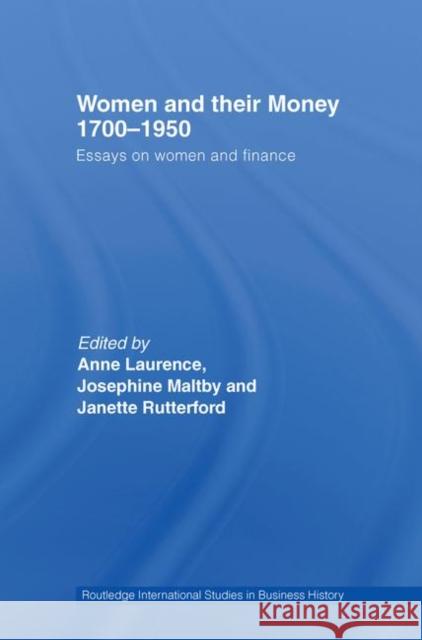Women and Their Money 1700-1950: Essays on Women and Finance » książka
Women and Their Money 1700-1950: Essays on Women and Finance
ISBN-13: 9780415419765 / Angielski / Twarda / 2008 / 336 str.
Women and Their Money 1700-1950: Essays on Women and Finance
ISBN-13: 9780415419765 / Angielski / Twarda / 2008 / 336 str.
(netto: 725,94 VAT: 5%)
Najniższa cena z 30 dni: 705,23 zł
ok. 16-18 dni roboczych.
Darmowa dostawa!
This book examines women's financial activity from the early days of the stock market in eighteenth century England and the South Sea Bubble to the mid-twentieth century. The essays demonstrate how many women managed their own finances despite legal and social restrictions and show that women were neither helpless, incompetent and risk-averse, nor were they unduly cautious and conservative. Rather, many women learnt about money and made themselves effective and engaged managers of the funds at their disposal. The essays focus on Britain, from eighteenth-century London, to the expansion of British financial markets of the nineteenth century, with comparative essays dealing with the US, Italy, Sweden and Japan. Hitherto, writing about women and money has been restricted to their management of household finances or their activities as small business women. This book examines the clear evidence of women's active engagement in financial matters, much neglected in historical literature, especially women's management of capital. .
This book examines women's financial activity from the early days of the stock market in eighteenth century England and the South Sea Bubble to the mid-twentieth century. The essays demonstrate how many women managed their own finances despite legal and social restrictions and show that women were neither helpless, incompetent and risk-averse, nor were they unduly cautious and conservative. Rather, many women learnt about money and made themselves effective and engaged managers of the funds at their disposal.
The essays focus on Britain, from eighteenth-century London, to the expansion of British financial markets of the nineteenth century, with comparative essays dealing with the US, Italy, Sweden and Japan. Hitherto, writing about women and money has been restricted to their management of household finances or their activities as small business women. This book examines the clear evidence of women's active engagement in financial matters, much neglected in historical literature, especially women's management of capital.
.











